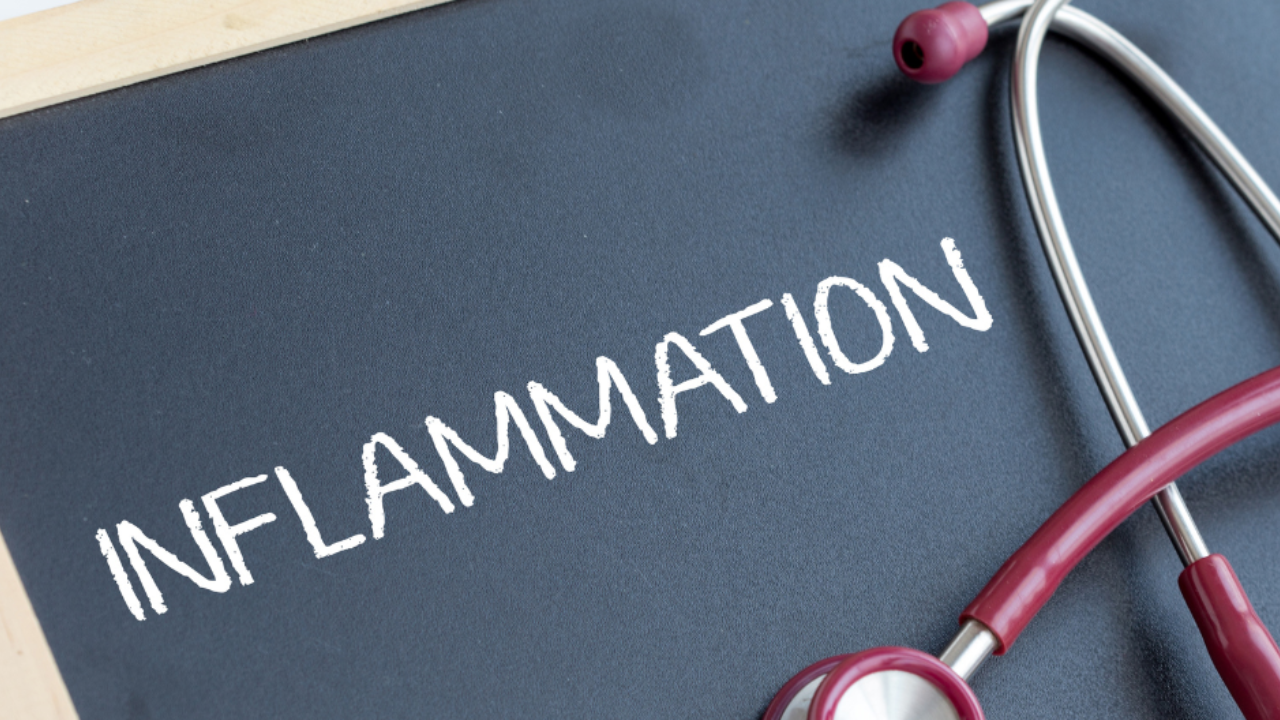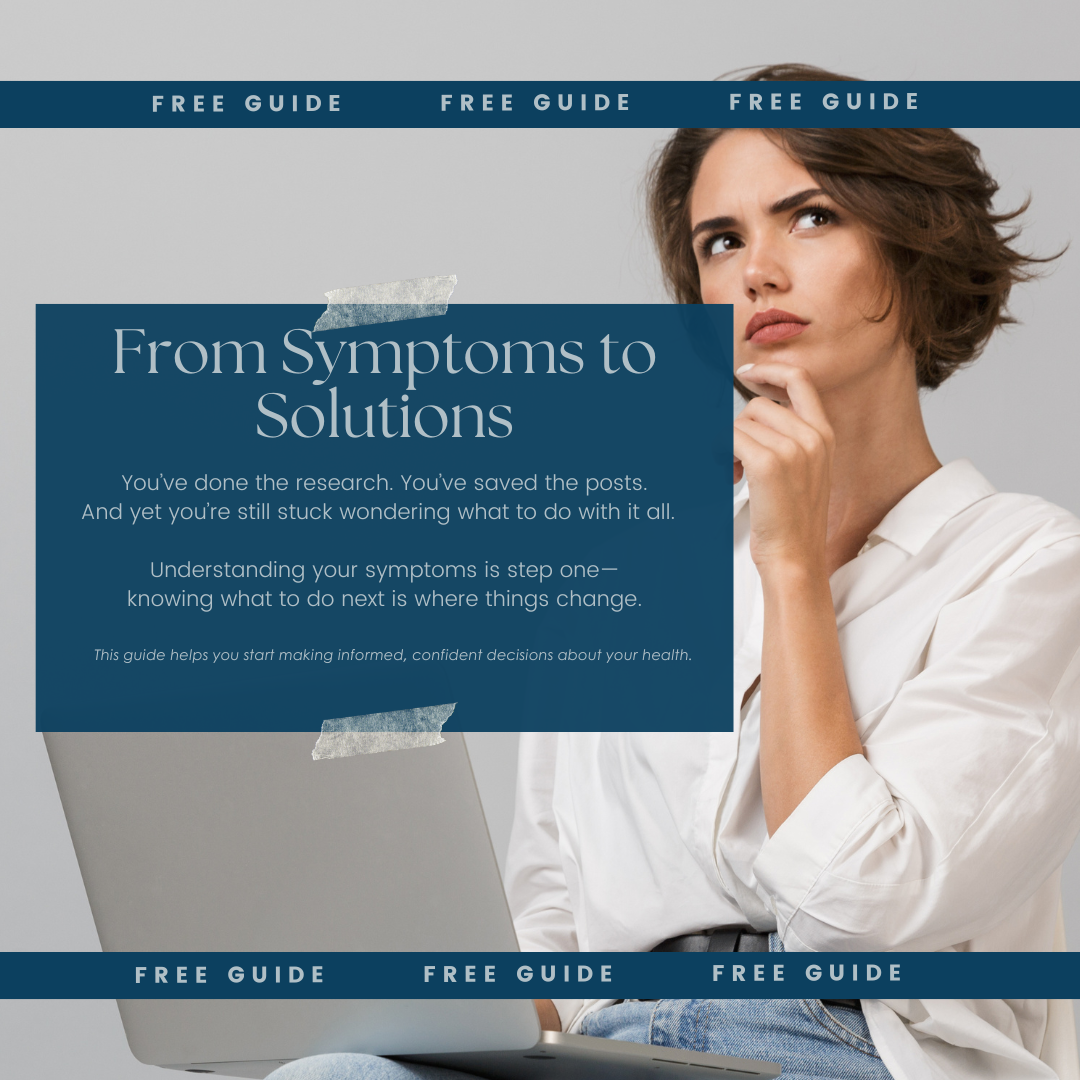Understanding and Managing Inflammation
Jul 24, 2023
It's common as we move through menopause and our bodies go through various changes, that we will experience inflammation.
You may recall the sensation of a cut, sprain, or a sore throat - the pain, heat, redness, and swelling - all clear indications of inflammation at work.
Inflammation is a natural and essential process performed by our bodies to protect us from infections and aid in the healing of damaged cells and tissues and is a good thing.
However in this stage of life, it's crucial to acknowledge that sometimes, even good things can go bad. Experiencing excessive inflammation can throw our bodies off balance, leading to various health challenges.
Through the power of mindful dietary and lifestyle choices, we can take charge of inflammation and foster a healthier and vibrant midlife.
Before diving into the specifics, let's take a moment to understand the two distinct types of inflammation.
Types of inflammation (acute vs. chronic)
There are two kinds of inflammation: acute and chronic.
- Acute inflammation is short-lived. When inflammation is acute it’s usually at high levels in a small localized area in response to an infection or some kind of damage to the body. It’s necessary for proper healing and injury repair. Symptoms of acute inflammation may need short-term treatment such as pain relievers or cold compresses. In general, acute inflammation goes away after the damage is healed, often within days or even hours. Acute inflammation is the “good” kind of inflammation because it does an essential job and then quiets itself down.
- Chronic inflammation is different. This type of inflammation can exist throughout your whole body at lower levels. This means that the symptoms aren’t localized to one particular area that needs it. Instead, they can appear gradually, and can last much longer—months or even years. This is the “bad” kind of inflammation.
Chronic inflammation is often invisible without immediate or serious symptoms, but over the long-term it’s been linked to many chronic diseases such as:
● Acne, eczema, and psoriasis
● Allergies and asthma
● Autoimmune diseases (arthritis, type 1 diabetes, multiple sclerosis, lupus)
● Cancer
● Chronic pain
● Gastrointestinal disorders (Crohn’s disease, ulcerative colitis)
● Heart disease and stroke
● Lung diseases (emphysema)
● Mental illnesses (anxiety, depression)
● Metabolic diseases (type 2 diabetes)
● Neurodegenerative diseases (Alzheimer’s, Parkinson’s)
>> Nutrition and lifestyle tips for reducing chronic inflammation. Studies show that reducing inflammation can reduce the risk of several of these conditions, including heart disease and cancer.
“For chronic low-grade inflammation not caused by a defined illness, lifestyle changes are the mainstay of both prevention and treatment,” says Harvard Health. The good news is that anti-inflammatory foods help you stay healthy and reduce your risk of many diseases. In fact, it’s estimated that 60 percent of chronic diseases could be prevented with a healthy diet.
Here’s how.
1. Enjoy an anti-inflammatory diet.
- Increase your intake of fruits and vegetables, whole grains (brown rice, oats, bran), nuts (almonds), seeds, fish, poultry, legumes (beans, lentils), and healthy oils (olive oil)
- Enjoy foods high in antioxidant polyphenols, including colorful plants such as berries, cherries, plums, red grapes, avocados, onions, carrots, beets, turmeric, green tea, and dark green leafy vegetables like spinach and kale
- Omega-3 fats can help to reduce pain and clear up inflammation and are found in salmon, trout, mackerel, soy, walnuts, and flax
- High fiber foods (whole grains, vegetables, fruits, legumes) encourage friendly gut microbes to help reduce inflammation
- Avoid charring foods when cooking at high temperatures
- Limit inflammatory foods such as red and processed meats (lunch meats, hot dogs, hamburgers), fried foods, unhealthy fats (shortening, lard), sugary foods and drinks refined carbohydrates (white bread, cookies, pie), and ultra-processed foods (microwaveable dinners)
2. Be physically active
- Regular exercise reduces inflammation over the long-term, so try to get at least 150 minutes of moderate-intensity aerobic exercise (brisk walking) per week; about 20-30 minutes per day PLUS strength training
3. Get enough restful sleep
- Disrupted sleep has recently been linked to increased inflammation and atherosclerosis (the buildup of plaque in the vessels that’s linked with heart disease), so aim for 7-9 hours of restful sleep every night to help the body heal and repair
- Tips for better sleep: try to maintain a regular sleep-wake schedule every day, get exposure to natural daylight earlier in the day, avoid caffeine later in the day, cut out screens an hour before bedtime, and create a relaxing nighttime routine
4. Quit smoking and limit alcohol
5. Manage your stress
- Engage in relaxing stress-reducing activities such as mindfulness-based stress reduction (MBSR), deep breathing, meditation, yoga, or tai chi
6. Be social
7. See your doctor or dentist
- Get your cholesterol and blood lipids tested because high amounts of “bad” LDL cholesterol is linked to inflammation and negatively affects your vessels
- You can request a blood test to measure levels of CRP (C-reactive protein) which is a marker of inflammation (this test is also used to check your risk of developing heart disease)
- If your gums bleed when you brush or floss, this may be a sign of gum inflammation (gingivitis), so ramp up your oral hygiene and see your dentist
Chronic, long-term, low-level inflammation is linked with many health issues. The first approach to preventing and improving this is through food and lifestyle changes. These changes can be integrated into your day-to-day practices.
Want to learn how you can beat inflammation with simple and delicious foods? Check out my Recipe and Resource Bundles.
Stay connected with news and updates!
Join our mailing list to receive the latest news and updates from our team.
Don't worry, your information will not be shared.
We hate SPAM. We will never sell your information, for any reason.


